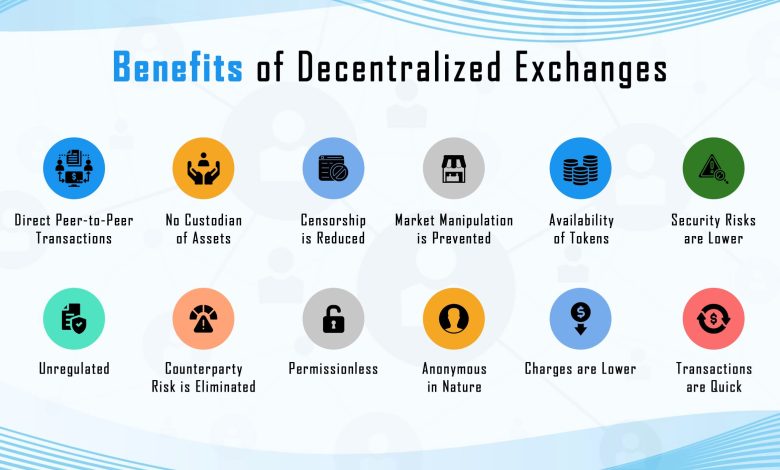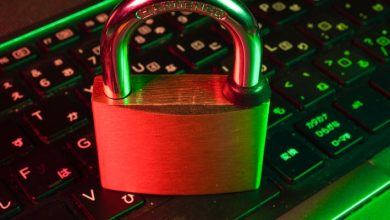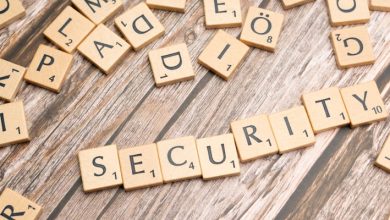How to Stay Safe While Trading on Decentralized Exchanges

- Understanding the Risks of Decentralized Exchanges
- Best Practices for Securing Your Funds on DEX Platforms
- Tips for Identifying Scams on Decentralized Exchanges
- Protecting Your Privacy While Trading on DEX
- How to Verify the Legitimacy of DEX Projects
- Securing Your Wallet and Private Keys on Decentralized Exchanges
Understanding the Risks of Decentralized Exchanges
When using decentralized exchanges, it is important to understand the risks involved. Unlike centralized exchanges, decentralized exchanges do not have a central authority overseeing transactions. This lack of oversight can lead to potential vulnerabilities and security threats for users.
One of the main risks of decentralized exchanges is the possibility of smart contract bugs or vulnerabilities. Smart contracts are the backbone of decentralized exchanges, and any flaws in the code can be exploited by malicious actors. It is crucial to thoroughly research the smart contracts used by the exchange and ensure they have been audited by reputable third parties.
Another risk to consider is the lack of customer support on decentralized exchanges. In the event of a problem with a transaction, there may be no one to turn to for assistance. It is essential to be cautious and double-check all transactions before confirming them to avoid any irreversible mistakes.
Additionally, decentralized exchanges are susceptible to liquidity issues. Since trades are made directly between users, there may not always be enough liquidity to execute a trade at a desired price. This can result in slippage and potentially unfavorable trading conditions.
Overall, while decentralized exchanges offer increased privacy and security compared to centralized exchanges, it is important to be aware of the risks involved. By staying informed, conducting thorough research, and exercising caution, traders can mitigate these risks and trade safely on decentralized platforms.
Best Practices for Securing Your Funds on DEX Platforms
When it comes to securing your funds on decentralized exchanges (DEX), there are several best practices you can follow to ensure the safety of your assets. Here are some tips to help you stay safe while trading on DEX platforms:
- Use a Hardware Wallet: Consider using a hardware wallet to store your funds securely offline. This provides an extra layer of protection against potential hacks or security breaches.
- Enable Two-Factor Authentication (2FA): Always enable 2FA on your DEX account to add an extra level of security. This will help prevent unauthorized access to your account.
- Verify Smart Contracts: Before trading on a DEX platform, make sure to verify the smart contracts being used. This can help you avoid falling victim to scams or malicious activities.
- Avoid Phishing Scams: Be cautious of phishing scams that may try to trick you into revealing your private keys or login credentials. Always double-check URLs and never share sensitive information.
- Keep Software Updated: Regularly update your wallet software and any other tools you use for trading on DEX platforms. This will help patch any vulnerabilities and keep your funds safe.
By following these best practices, you can help protect your funds and trade with peace of mind on decentralized exchanges. Remember to stay vigilant and prioritize security when engaging in cryptocurrency trading.
Tips for Identifying Scams on Decentralized Exchanges
When trading on decentralized exchanges, it is crucial to be vigilant and aware of potential scams that may arise. Here are some tips for identifying scams to help you stay safe:
- Research the project thoroughly before investing. Look into the team behind the project, their experience, and the overall credibility of the project.
- Be cautious of projects that promise high returns with little to no risk. If it sounds too good to be true, it probably is.
- Avoid projects that pressure you to invest quickly or use aggressive marketing tactics. Take your time to make informed decisions.
- Check for red flags such as spelling errors, unprofessional website design, and lack of transparency in the project’s whitepaper.
- Use reputable decentralized exchanges with a track record of security and reliability. Do not trust unknown or newly established exchanges without verifying their legitimacy.
By following these tips and staying informed, you can reduce the risk of falling victim to scams on decentralized exchanges. Remember to always prioritize your security and do your due diligence before making any investment decisions.
Protecting Your Privacy While Trading on DEX
When it comes to **trading** on decentralized exchanges (DEX), **protecting** your **privacy** is crucial. Here are some **tips** to help you **stay safe** while **engaging** in **DEX trading**:
- Use a **secure** **wallet**: Make sure to **store** your **crypto** in a **secure** **wallet** that you **control** the **private keys** to. This will help **protect** your **funds** from **hackers**.
- Avoid **sharing** **personal** information: **Be cautious** about **sharing** any **personal** information on **DEX platforms**. **Limit** the **amount** of **data** you **provide** to **minimize** the **risk** of **identity theft**.
- Enable **two-factor authentication**: **Adding** an extra **layer** of **security** to your **DEX account** with **two-factor authentication** can help **prevent** unauthorized **access**.
- Research **DEX platforms**: Before **trading** on a **DEX**, make sure to **research** the **platform** to **ensure** it has a **good reputation** for **security** and **privacy**.
- Use a **VPN**: **Consider** using a **virtual private network** (VPN) to **encrypt** your **internet** **connection** and **mask** your **IP address** while **trading** on **DEX platforms**.
By following these **guidelines**, you can **protect** your **privacy** and **security** while **engaging** in **DEX trading**. **Remember** to **stay vigilant** and **take** **precautions** to **safeguard** your **crypto** **assets**.
How to Verify the Legitimacy of DEX Projects
When it comes to trading on decentralized exchanges (DEX), verifying the legitimacy of projects is crucial to ensure the safety of your investments. There are several steps you can take to determine if a DEX project is legitimate or not.
One way to verify the legitimacy of a DEX project is to research the team behind it. Look for information about the team members, their experience in the blockchain industry, and their track record of successful projects. A reputable team with a history of delivering on their promises is more likely to be running a legitimate DEX project.
Another important factor to consider is the transparency of the project. Legitimate DEX projects will have a whitepaper that outlines their goals, technology, and roadmap. They should also have a clear and detailed explanation of how their platform works and how they plan to generate revenue. If a DEX project lacks transparency or has a vague whitepaper, it may be a red flag that it is not legitimate.
Additionally, you can look for reviews and feedback from other users who have traded on the DEX platform. Check forums, social media, and review sites to see what others are saying about the project. If there are a lot of negative reviews or reports of scams, it’s best to steer clear of that DEX project.
In conclusion, verifying the legitimacy of DEX projects is essential for staying safe while trading on decentralized exchanges. By researching the team, checking for transparency, and looking for feedback from other users, you can make informed decisions about which DEX projects to trust with your investments.
Securing Your Wallet and Private Keys on Decentralized Exchanges
When trading on decentralized exchanges, it is crucial to prioritize the security of your wallet and private keys. Here are some essential tips to help you secure your funds:
- Use a hardware wallet to store your private keys securely offline.
- Enable two-factor authentication for an extra layer of security.
- Avoid sharing your private keys or wallet information with anyone.
- Regularly update your wallet software to protect against vulnerabilities.
- Consider using a multisig wallet for added security.
By following these best practices, you can help safeguard your funds and trade with peace of mind on decentralized exchanges.



